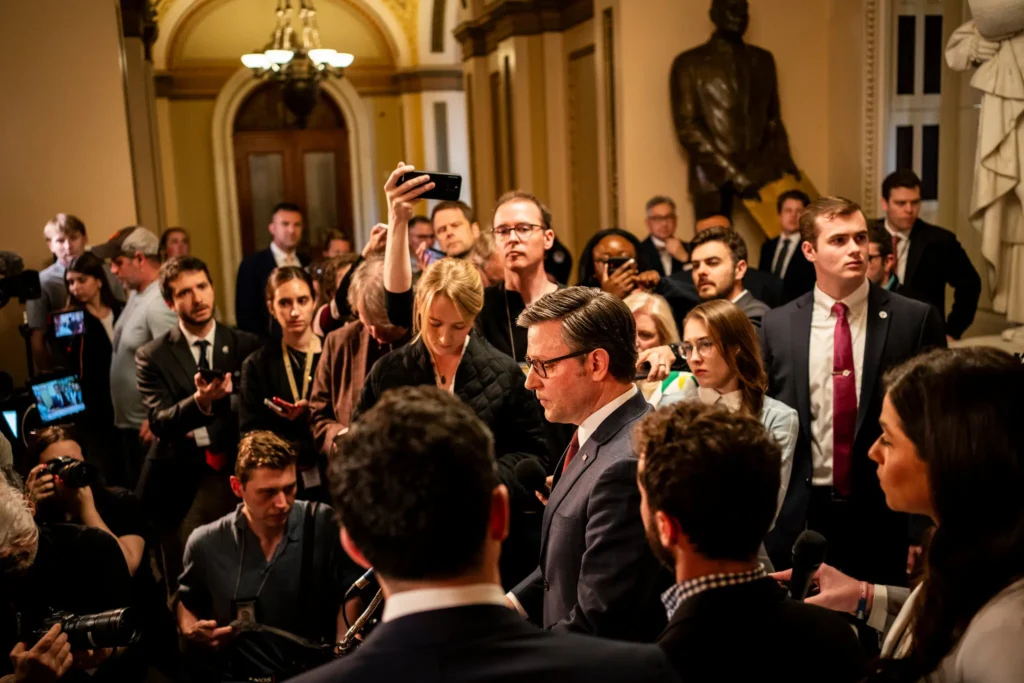Rethinking Foreign Aid and the Political System: Putting America’s People First
“The passage of this $95 billion foreign aid bill is a stark reminder of the bipartisan consensus in Washington to prioritize foreign interests over domestic needs. As our nation grapples with economic uncertainty, crumbling infrastructure, and rising poverty, our elected representatives are more concerned with funding wars and interventions abroad. The inclusion of provisions to potentially force the sale of TikTok and implement stricter sanctions on Russia, China, and Iran only serves to further entangle us in a web of geopolitical conflicts that do not serve the interests of the American people.

We cannot afford to continue down this path of reckless spending and interventionism. It’s time for a new era of leadership that prioritizes the needs of our citizens, not the interests of foreign governments and corporations. We must hold our elected officials accountable and demand a change in course. The future of our nation depends on it.”
As the United States grapples with economic challenges, it’s essential to reevaluate our foreign aid policies and prioritize the needs of our own citizens. With millions of Americans struggling to make ends meet, it’s unconscionable to continue doling out billions in aid to other countries while our own people suffer. This issue is symptomatic of a larger problem – a political system that prioritizes corporate interests and the wealthy elite over the well-being of the American people.
Economic Reasons to Rethink Foreign Aid:
- Fiscal Responsibility: The U.S. national debt has surpassed $31 trillion, with a significant portion attributed to foreign aid and military interventions. By reallocating these funds, we can reduce our debt burden and create a more sustainable economic future.
- Domestic Poverty and Inequality: Over 33 million Americans live in poverty, and many more struggle with financial insecurity. Investing in our own citizens’ well-being, education, and job creation would have a more direct and profound impact on our economy.
- Infrastructure and Public Services: Our country’s crumbling infrastructure, underfunded schools, and overwhelmed healthcare system cry out for attention. Redirecting foreign aid funds towards these critical areas would stimulate economic growth and improve citizens’ quality of life.
- Opportunity Cost: Every dollar spent on foreign aid means one less dollar available for domestic initiatives, such as research and development, renewable energy, and small business support. By prioritizing our own economic development, we can drive innovation and job creation.
- Economic Multiplier Effect: Investing in our own economy would have a multiplier effect, as funds circulate and create additional economic activity. In contrast, foreign aid often disappears into corrupt governments or inefficient programs, yielding limited economic benefits.
- National Security: A strong economy is the backbone of national security. By addressing our domestic economic challenges, we can ensure a more stable and prosperous future, reducing the need for costly military interventions and foreign entanglements.

The Need for a New Political System:
Our current political system is fundamentally broken, prioritizing the interests of corporations, lobbyists, and the wealthy elite over those of the American people. To truly put our citizens first, we need a system that:
- Limits Corporate Influence: Implement strict campaign finance reform and eliminate the revolving door between government and corporate positions.
- Empowers Citizens: Increase voter turnout through automatic registration, same-day registration, and voting rights protection.
- Prioritizes People Over Profit: Shift the focus from corporate welfare and tax breaks to investing in education, healthcare, and infrastructure.
- Fosters Transparency and Accountability: Strengthen whistleblower protections, increase government transparency, and hold elected officials accountable for their actions.
The War Machine and Media Narratives:
We are currently engaged in two costly wars, draining our resources and diverting attention from pressing domestic issues. The media perpetuates a narrative that justifies these conflicts, often obscuring the true costs and consequences. It’s time to:
- Reevaluate Our Military Involvement: Prioritize diplomacy and international cooperation, reducing our reliance on military interventions.
- Promote Independent Media: Support diverse, independent media outlets that provide unbiased reporting and challenge the dominant narrative.
“Oh, can’t you see, we’re bleeding from the soul?
As oligarchs feast, our families lose control.
Crumbs from their tables, while they orchestrate our pain,
Boogeymen to fear, as they pick our pockets clean again.
We’re tired, we’re hungry, our voices cry in vain,
As they send our wealth abroad, while we struggle to sustain.
No food on our tables, yet they fund wars and more,
Leaving us to suffer, as they shut our doors.
We need a change, a revolution in our sight,
To stand up to the few, who hold our fate tonight.
The American people rise, to take back what’s our own,
To break the chains of greed, and make our voices known!”
Conclusion:
The United States needs a new political system that prioritizes the people who live here, not just the wealthy and powerful. By rethinking our foreign aid policies and addressing the systemic issues that perpetuate inequality and corporate influence, we can create a more just, prosperous, and sustainable future for all Americans. It’s time to take back our country and ensure that the government truly serves the people, not just the privileged few.








